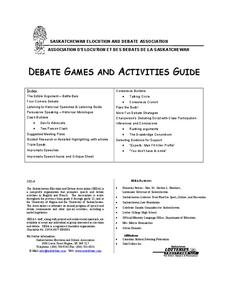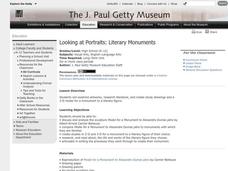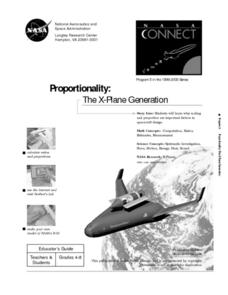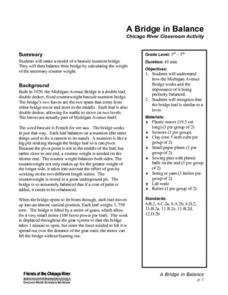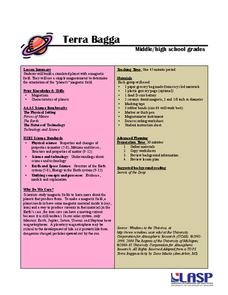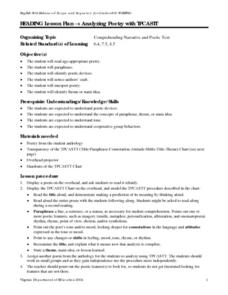EngageNY
Developing Reading Fluency: Beginning the End of Unit 2 Assessment
Third graders continue to develop their reading fluency in preparation for their assessment in the tenth lesson plan of this unit. Young readers are provided with a short passage on Helen Keller, which they use while working in pairs...
Saskatchewan Elocution and Debate Association
Debate Games and Activities Guide
A must-have resource for classes that engage in debate, this packet contains 20 detailed plans for debate games and activities. Everything from how to select evidence to support a position, to structuring a debate on which candy bar is...
Curated OER
Looking at Portraits: Literary Monuments
Examine artwork, research literature, and create art pieces for a monument to a literary figure. Young scholars analyze the sculpture Model for a Monument to Alexandre Dumas père and compare it to other well-known monuments. They...
Curated OER
Looking At Portraits: Literary Monuments
High schoolers examine artworks, research literature, and create study drawings and a 3-D model for a monument to a literary figure. They discuss and analyze the sculpture Model for a Monument to Alexandre Dumas p??re by Albert-Ernest...
Curated OER
Polyhedra: Faces, Edges, and Vertices (3-D Marshmallow Models)
Third graders explore the attributes of 3-dimensional shapes. In this shapes instructional activity, 3rd graders examine faces, edges, and vertices of 3-dimensional shapes as they construct shapes using marshmallows and toothpicks.
Curated OER
Life in the Arctic
Pupils create a model of an arctic animal. In this animal adaptation lesson plan, students research an arctic animal, create a 3-D model of their animal, and explain the physical characteristics animals in the arctic need to survive.
Curated OER
Proportionality: The X-Plane Generation
Students meet NASA researchers who describe the relationship between force, energy and motion. They discuss how NASA's experimental X-plane is being tested to make space travel more reliable and show how proportionality and ratios are...
Curated OER
Looking at Portraits: Literary Monuments
Students examine artworks, research literature, create drawings, and make a 3-D model for a monument to a literary figure. In this literary portrait lesson, students discuss and analyze the sculpture Study of a Monument to Alexandre...
Illustrative Mathematics
Christo’s Building
Hook your charges on how to solve a real-world art problem with mathematics by showing works of Christo. You can find eye-catching images on the Christo and Jeanne Claude webpage. Here, math learners help Jean Claude and Christo prepare...
Curated OER
The Dream Getaway
Students observe images of amazing places, either real, or imagined by Rene Magritte, Salvador Dali, and Ansel Adams. They think about a time when they wanted to escape and where they wanted to go. They draw their getaway and then...
Curated OER
A Bridge in Balance
Students explore how the Michigan Avenue Bridge works and the
importance of it being perfectly balanced. They make a model of a bascule trunnion bridge and balance their bridge by calculating the weight
of the necessary counter weight.
Technical Sketching
Introduction — Surfaces and Edges
How different can 3-D and 2-D really be? An engineering resource provides an explanation about the importance of two-dimensional technical drawings. Several samples show how to create multi-view drawings from pictorials and...
Curated OER
Topographic Connections: Earth's Surface Shapes Streams; Streams Sculpt the Earth
Middle schoolers identify physical characteristics of developing streams and infer changes in the landscape by creating a river model.
University of Colorado
Terra Bagga
One way to identify possible volcanic activity on other planets is by testing the planet for magnetism. A science lesson begins with pupils constructing their own planet from a dead battery, magnets, paper, and tape before labeling...
Pinecrest Preparatory Middle and High School
Touching Spirit Bear: Final Novel Project
Close up your study of Touching Spirit Bear with any of these assessment options. Each of the four project options is described in detail. Also included is a page that learners can use to portion out their time to make sure they fulfill...
Virginia Department of Education
Passing Traits to Offspring
What makes each one of us unique? Lead your class in this exciting and educational activity as you uncover traits that show how each individual is different from another. Pupils explore facts about DNA technology and predict the...
Science Geek
Metallic Bonding
Introduce your class to metallic bonding with a presentation that covers packing in metals, substitutional alloys, interstitial alloys, and properties of metals.
Biology Junction
Cellular Structure
The human body contains more than 200 types of cells, and plants contain many other unique types of cells. While a huge variety of cells exist, they appear to have very similar structures. A detailed presentation describes the structure...
Great Books Foundation
Discussion Guide for Handmaid's Tale
Great literature discussions are a consequence of carefully crafted questions, interpretative questions that permit more than one response, and responses supported by specific evidence from the text. The discussion questions in a guide...
Curated OER
Stars Lab
After making a list of top 10 brightest stars, your class will learn to classify the colors of the hottest and coolest stars. The spectral classes will help with understanding of nuclear fusion and the life of a star.
Research Laboratories of Archaeology
Pottery Traditions
As part of their study of Native American pottery traditions, class member try their hand at crafting and decorating a clay pot
Cold Spring Harbor Laboratory
DNA Is Packaged in a Chromosome
Roger Kornberg, the oldest son of two biochemists, won the 2006 Nobel Prize in Chemistry. Learn about Kornberg and his scientific research with an animation, videos, biography, and an applied problem-solving activity. A summary and...
Curated OER
Analyzing Poetry with TPCASTT
Middle schoolers read a poem and complete a TPCASTT chart. They make a prediction about the title (T) , paraphrase each line (P), identify poetic devices and nuances (C-connotation), explore mood and tone (A-attitude), point out shifts...
Curated OER
Venn Diagram for Compare/Contrast
Use this instructional activity to focus on a compare and contrast writing structure in your middle school language arts class. Here, young writers compare and contrast two texts using graphic organizers. They use a double bubble format...

